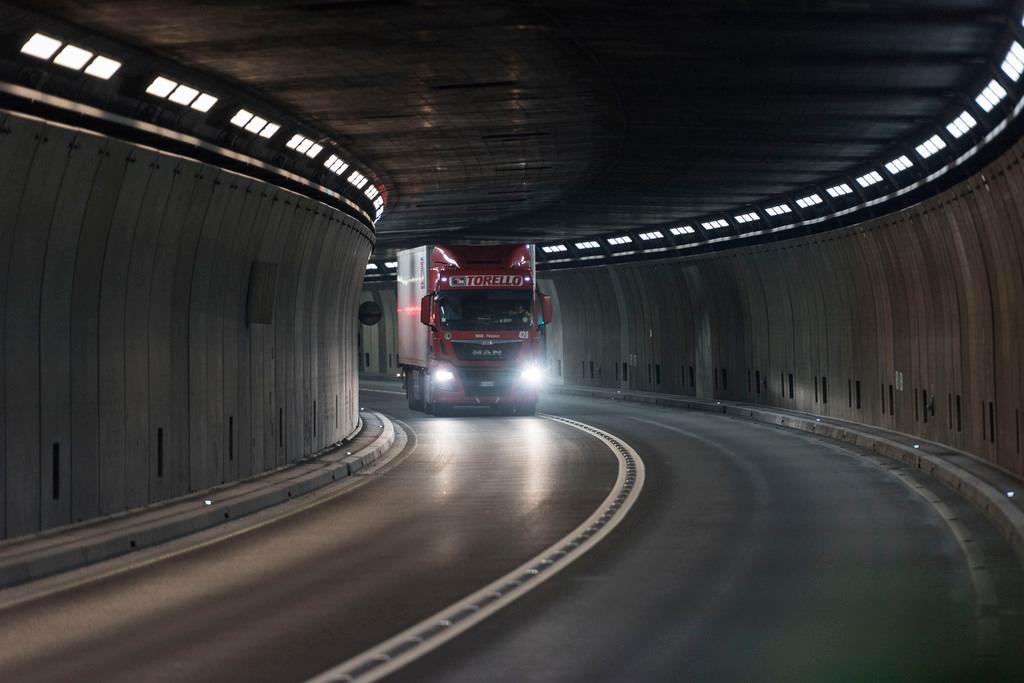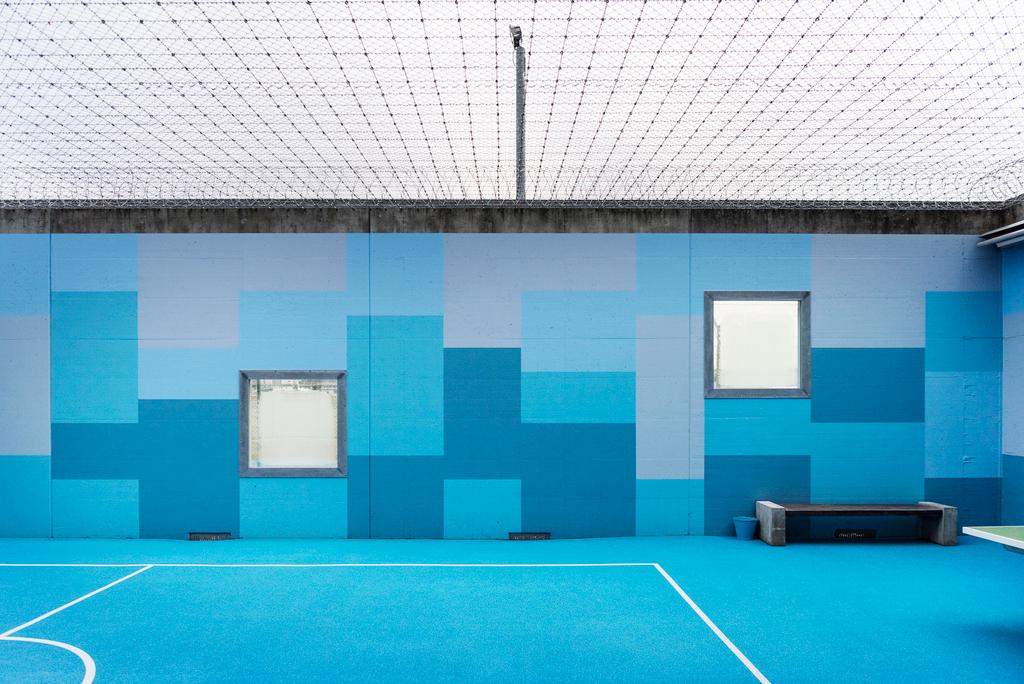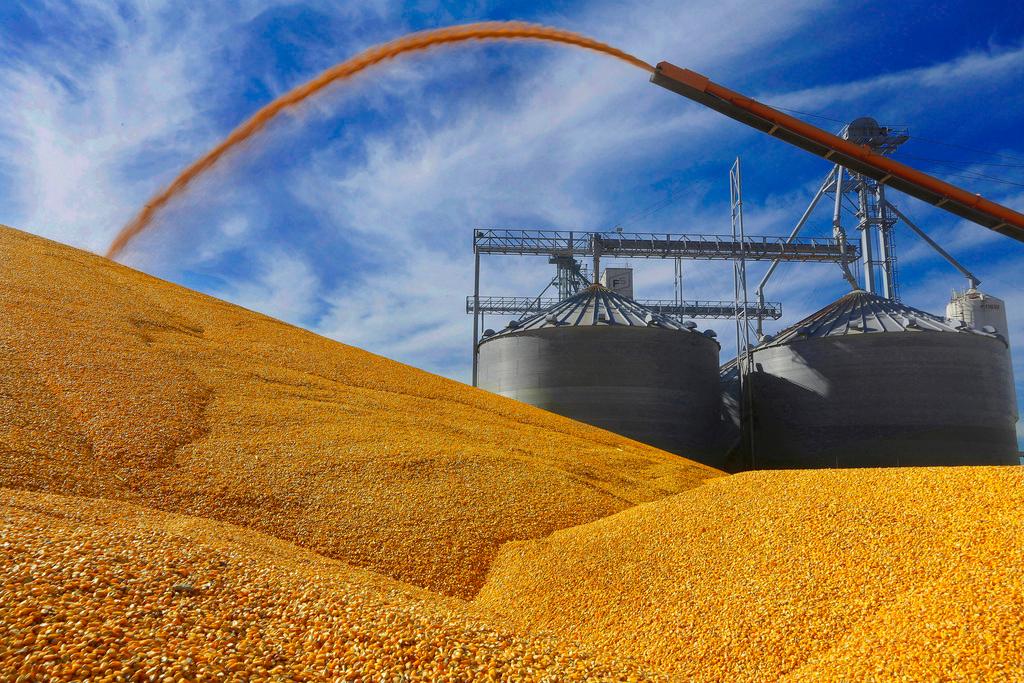Safety and environment drive road tunnel vote

Voters on Sunday will decide on the construction of an additional road tunnel through the central Swiss Alps, one of Europe’s main north-south links for cars, buses and trucks.
A broad coalition of environmental groups and mainly leftwing parties is challenging last year’s decision by parliament to build a second 17km tube through the Gotthard massif in the heart of Switzerland.
The government says the existing tunnel needs renovation after more than 35 years. A second parallel arm would absorb the more than 17,000 vehicles on average passing the thoroughfare every day.
Later on, the two tunnels will only be used for one-directional traffic and limited to one lane only, the authorities have pledged.
The government and parliament claim the second tunnel – costing about CHF2.8 billion ($2.8 billion) – will help ensure road safety and provide continuous access to a north-south road link all year round both for economic and political reasons.
The southern Ticino region – bordering Italy’s Lombardy and Piedmont regions – would be cut off from the rest of Switzerland if the existing tunnel closed without an equivalent offer, they say.
Nearly 40 people have died in road accidents in the 17km tunnel since 1980, including 11 victims of a fire in 2001.
More traffic
However, opponents have warned the second tunnel would attract more traffic and increase pressure from the European Union to allow the use of a second lane in both tunnels.
They also argue the proposed solution is too expensive and came too early, since Switzerland will open the world’s longest rail tunnel through the Gotthard in June. Its construction cost about CHF12 billion.
“Doubling of the Gotthard tunnel would sabotage the transfer of goods from road to rail,” claims Jon Pult, president of the Alpine Initiative group leading the No campaign.
However, Senator Filippo Lombardi, supporting the project, says rejecting an additional tunnel just means leaving future generations with the problem of renovating the existing tunnel, which will come up every 30-40 years.
At the launch of the campaign last October, Transport Minister Doris Leuthard dismissed concerns about a gradual opening of additional lanes in the two tunnels, saying such a move would require another nationwide vote to amend the constitution.
Apart from the referendum on the construction of a second road tunnel through the Gotthard, three other issues feature on the ballot sheet.
A proposal to implement to the letter a rightwing initiative aimed at deporting criminal foreigners.
An initiative to end fiscal discrimination against married couples.
An initiative by an alliance of leftwing groups to ban financial speculation with foodstuffs.
Opponents win ground
Experts say the Sunday vote could go either way. A final opinion poll carried out at the beginning of February saw opponents narrowing the margin considerably.
“This is quite unusual,” says political scientist Martina Mousson of the leading GfS Bern research and polling institute.
Given the intense campaigning over several months and dwindling support by leading media, the government as well as most political parties risk facing a defeat similar to a nationwide vote in 1994, when a coalition of environmentalists and leftwing parties won an unexpected victory.
Their proposal to cap transalpine road traffic and to promote a plan to put long-haul trucks onto rail went down as a major upset at the ballot box.
Critics have since accused the government and parliament of failing to implement the initiative, as targets to reduce the number of trucks crossing the Alps of trucks were missed and deadlines later extended.
But voters remained adamant and also rejected a proposal in 2004 to build a second Gotthard road tunnel.
Turnout in Sunday’s ballot is expected to be clearly above average, at least 55%.

In compliance with the JTI standards
More: SWI swissinfo.ch certified by the Journalism Trust Initiative




You can find an overview of ongoing debates with our journalists here. Please join us!
If you want to start a conversation about a topic raised in this article or want to report factual errors, email us at english@swissinfo.ch.